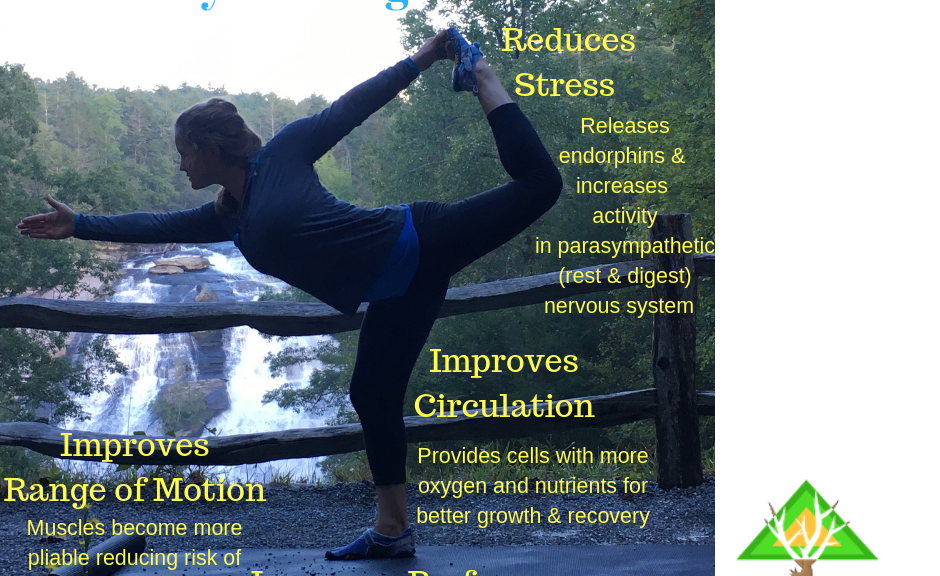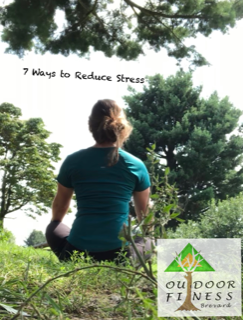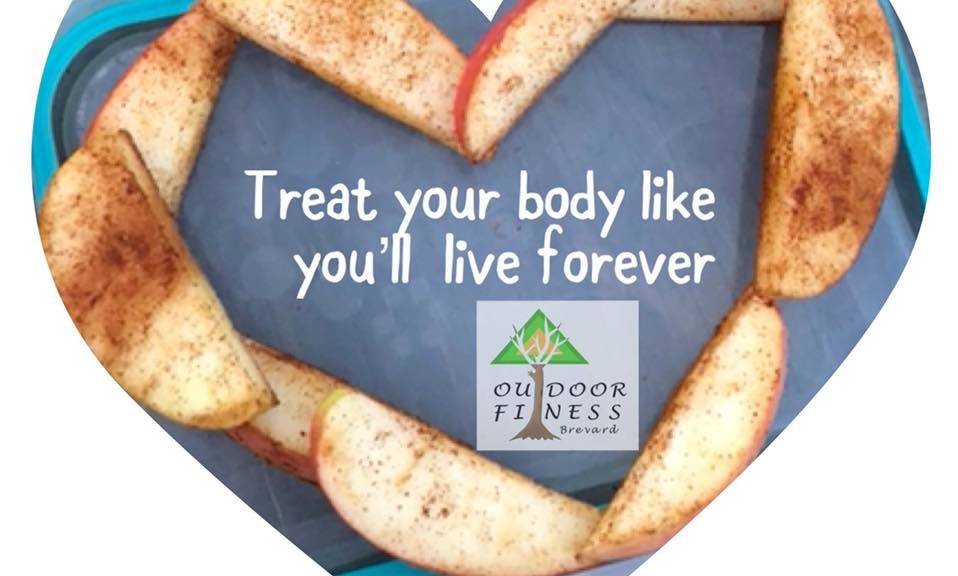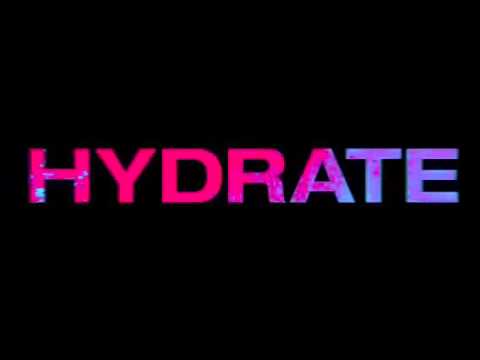



How To Stay Healthy During The Holidays


It’s been shown pretty clearly that as daylight decreass, starting in fall, people will have more feelings of deprssion and anxiety. If there are feelings of depression and anxiety they will report stress.” Dr. Elinre McCance-Katz Psychiatrist and chief Medical officer at HHS.
7 Ways To Reduce Stress
1. Exercise – At least 10 mins per day
2. Practice Deep Breathing – Take 2-5 mins per day
3. Eat Stress Reducing Foods – Almonds, Oatmeal, Turkey, Greens, Oranges, Blueberries, Avocado, Salmon
4. Laugh – Look up jokes on the internet or just pretend to laugh. Laughter enhances your intake of oxygen-rich air, stimulates your heart, lungs and muscles, and increases the endorphins that are released by your brain.
5. Be Grateful – Make a list of things you are grateful for.
6. Meditate – Take a few minutes to think of positive and healing thoughts.
7. Light a Candle or Diffuse Essential Oil – Scents that work well to help fight stress: Lavender, Rose, Chamomile, Ylang Ylang, Orange Blossom

1. Mindful Self Talk – How do you view yourself? Positive self talk can boost your confidence, eliminate stress and help improve performance.
2. 5 Color Meals – Make half your plate fruits or veggies.
3. Breathe – Dedicate 1 – 5 minutes per day to deep breathing to relax, detox and refresh the mind.
4. Move for 10 – Only 10 minutes of exercise a day has been shown to enhance immune function, boost endorphins and improve general fitness.
5. Have Enjoyment Everyday – Do something that makes you smile everyday. Watch something that makes you laugh, take a fitness class, call a friend, play a game, dance, ect.

Do you eat when you are not hungry?
Do you eat when you are bored?
Do you eat when anxious or stressed?
Do you have sudden hunger that needs to be satisfied instantly?
Do you binge eat?
Do you reward yourself with food?
Do you feel powerless or out of control around food?
If you answer yes to any of these questions you could be an emotional eater.
Why does it occur?Food is pleasurable – When we eat palatable food high in sugar and fats, opioids (narcotics) are released; opioids are substances that target the brain’s reward center. Opioids affect the brain by attaching to receptors and once attached, the brain sends signals to ease pain and stress and to calm down. Other well-known opioids include codeine, hydrocodon and methadone. The feeling these substances cause keep you coming back for more.
Identify your triggers
Depression
Anxiety
Exhaustion
Boredom
Stress
Childhood habits
Social influences
Potential ways to avoid eating
Depression – Call Someone, Look at photos or Listen to up-beat music
Anxiety – Dance, Take a walk, Tap acupressure points, Rest one hand on your forehead and other on the back of your neck
Exhaustion – Drink tea, Take a bath, Wrap up in blanket
Boredom – Read, Watch TV, Go Outdoors, Make a bucket list
Stress – Scream, Exercise, Meditate, Find things that give you a release
Childhood habits – Reflect on memories, Remove yourself from familiar situations
Social Influences – Activity with friends, Keep a food log and note your mood
Mindful Eating
Develop awareness of your eating habits and pause before engaging in old behaviors. Become mindful and learn how to stay in control of your emotions.
1. Eat before you are “starving” – when you are very hungry most times you do not care what you eat
2. Start with a small portion – use smaller plates
3. Appreciate your food – strip away all distractions, immerse in your food experience, and show appreciation before you dig in
4. Take it all in – use all your senses when dining: smell the aromas, feel the textures on your tongue, notice the colors, taste the spices and hear the sound it makes when you chew
5. Take small bites and eat slowly – it’s easier to taste food when your mouth isn’t full
Emotional eating is powerful and an undeniable way to reduce pain, yet it can also be detrimental to your health. Through commitment, patience and strength, it is possible to break the cycle!
Amanda Chalifour

Now that it’s summer and most of us are sweating more, learning to properly hydrate is important. Re-hydrating with water doesn’t replenish the electrolytes lost in sweat, and drinking too much water can lead to hyponatremia, another form of water intoxication; this is when sodium levels in the body become too diluted.
Signs you’re drinking too much water
* If your urine is clear (should be straw color)
* Constantly going to the bathroom
* Swelling or discoloration in your hands, lips or feet
Hyponatremia (low sodium) Symptoms
* Dizziness
* Fatigue
* Thirst
* Nausea
* Headache
* Cramping
Low Electrolyte Symptoms
* Fatigue
* Weakness
* Twitching
* Muscle spasm
Dehydration Symptoms
* Fatigue
* Thirst
* Muscle cramps
* Headache
* Nausea
* Dark Urine
* Dry Mouth, Eyes, Skin
How do cells hydrate?
Water is absorbed into cells via electrolytes such as sodium. Traces of sodium in the bloodstream enter the cell and carry water molecules with it.
If we do not have the proper amount of electrolytes in the body our cells won’t get enough water.
What is an electrolyte?
Calcium, Chloride, Magnesium, Phosphorus, Potassium and Sodium. Not only do electrolytes help hydrate the body, it uses them to conduct electricity as well. Electrolytes become ions in solution and conduct electricity. The human body uses these ions for muscle contractions and transmission of nerve impulses.
Electrolyte Sources
* Electrolyte powder (I recommend Celtic Sea Salt Electrolyte powder)
* Coconut water
* Sport drinks (contain very high in sugar and food colorings)
* Athletes can use mineral supplements (CAL-AMO, Trace Minerals and B12)
* Make your own electrolyte solution
Electrolyte Solution Recipe
1/2 cup fresh orange juice
1/4 cup fresh lemon juice
2 cups filtered water or raw coconut water
2 tbsp organic honey or maple syrup
1/8 tsp Himalayan Pink Salt or Celtic Sea Salt (table salt does not contain vital trace minerals)
Work hard and sweat on!
Amanda Chalifour